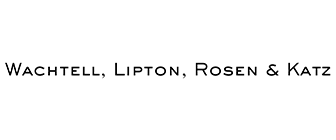Mylan and Pfizer’s Upjohn released a joint press release yesterday announcing their multi-billion dollar merger which will create a new global company.
The legal advisers
Cravath Swaine & Moore and NautaDutilh advised Mylan, while Wachtell Lipton Rosen & Katz and De Brauw Blackstone Westbroek advised Pfizer. Cravath’s team on the deal included IP star David J Kappos, who was supported by associates Miling Y Harrington and Carys A Johnson. M&A lawyers primarily led the team from Wachtell Lipton Rosen & Katz (for example, David K Lam and Gordon S Moodie) and De Brauw Blackstone Westbroek (lead partner: Paul Cronheim).
Analysis
The new company “is expected to have pro forma 2020 revenues of $19 to $20 billion”. Mylan is already widely recognised as one of the top 10 generic drug companies in the world (by revenues) and the merger will expand its geographical reach (a fact sheet on the merger is here). Financial commentators say the new company will overtake Teva Pharmaceutical Industries as the world’s largest generics manufacturer.
The merger brings together well-known, blockbuster brands such as Lipitor (atorvastatin calcium), Viagra (sildenafil), and Lyrica (pregabalin) - all registered trade marks owned by Pfizer. It remains to be seen whether the new company will sell certain brands in the future.
It is also interesting from a legal perspective because late last year Warner-Lambert (a Pfizer company) lost its long-running dispute with Mylan in the UK Supreme Court concerning the second medical use patent for Lyrica (Taylor Wessing represented Mylan in that patent case while Allen & Overy represented Warner-Lambert). Pfizer is expected to see a dip in its revenues from Lyrica as it faces more generic competition due to loss of patent protection and regulatory exclusivity rights.
The deal marks a significant shift in Pfizer’s business strategy: [T]his transaction represents our sharpened focus on innovative medicines...,” says its CEO Albert Bourla. Today, Pfizer announced that it has completed its acquisition of Array BioPharma for $11.4 billion, a deal which strengthens its innovative pharmaceutical business. According to its press release, “Array brings a broad pipeline of targeted cancer medicines in development, as well as a portfolio of out-licensed potentially best-in-class and/or first-in-class medicines, which are expected to generate significant royalties over time.”


